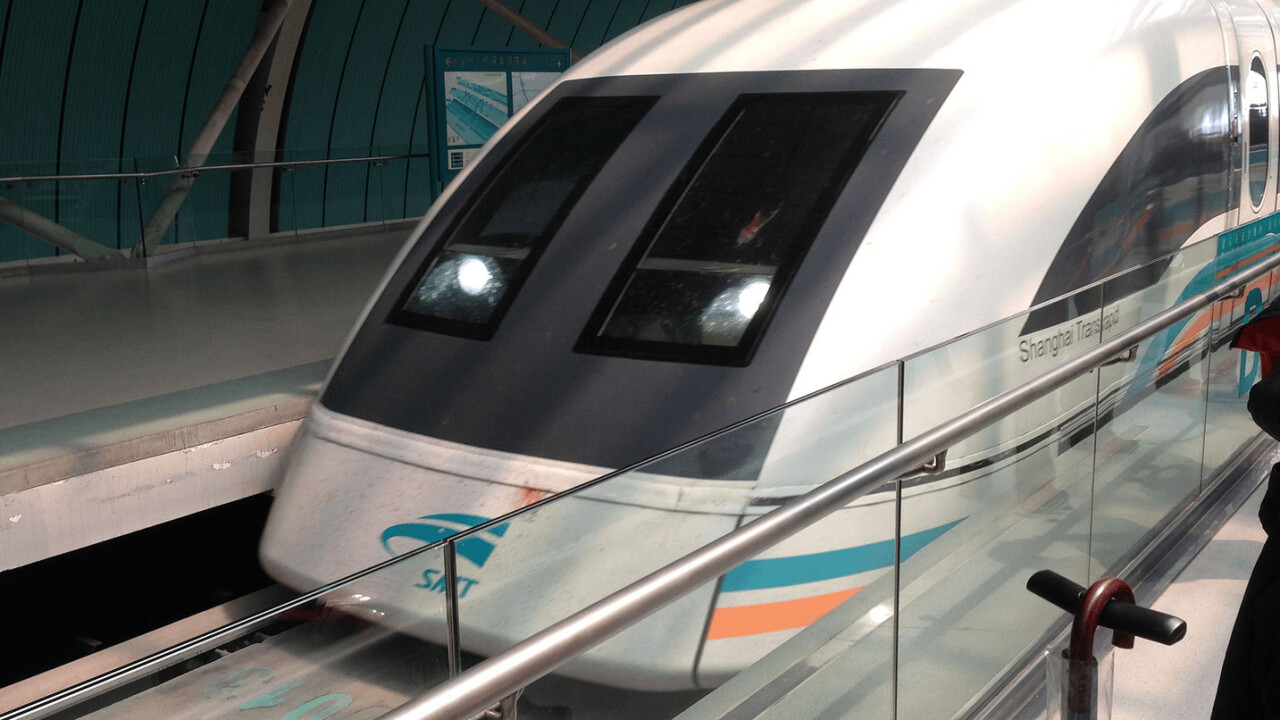China Railway Rolling Stock Corporation (CRRC) plans to build the world’s fastest train. At speeds of 373 mph, it’d obliterate the previous record held by Shanghai Maglev at 267 mph.
The firm is working on a modest proof of concept that would travel 124 mph over a three-mile test track. If successful, the plan is to utilize the country’s 12,000-plus miles of track already built to establish ‘domestic technology and standard systems for new-generation medium- and high-speed maglev transportation that can be applied globally,” says Sun Bangcheng, a CRRC official.
Magnetic levitation allows for such high speed by reducing the friction of traditional train travel. Instead of metal wheels grinding against metal rails, maglev trains glide on a cushion of air created by reversing the polarity of a magnet. In its simplest form, it’s like pressing two magnets together after turning one upside-down.
It’s not a new technology. Aside from Shanghai Maglev, which is already running in China, Japan completed its own maglev test last year that achieved blistering 366 mph speeds.
The US Air Force currently holds the record for maglev speeds at 633 mph after a rocket-powered sled traveled the distance of seven football fields in all of two seconds.
CRRC, for its part, isn’t just making high-speed trains in China. It has on-going projects in the UK, Mexico, Thailand and several other countries — the US isn’t one of them. It seems we’ll forever be hitched to the automobile, airplane, and slow-as-molasses train travel. Fingers crossed that a 700 mph Hyperloop changes all that.
via The Verge
Get the TNW newsletter
Get the most important tech news in your inbox each week.






